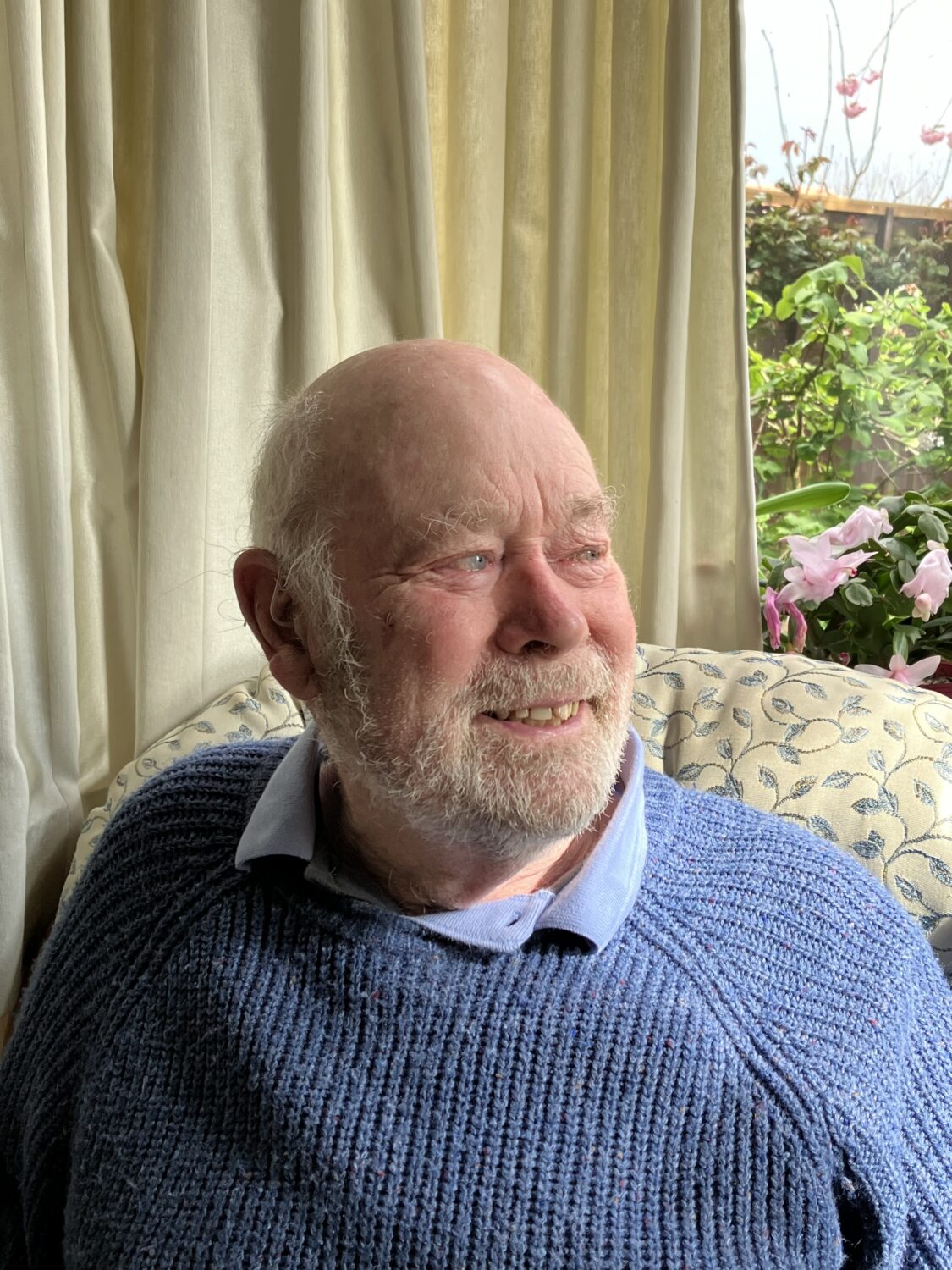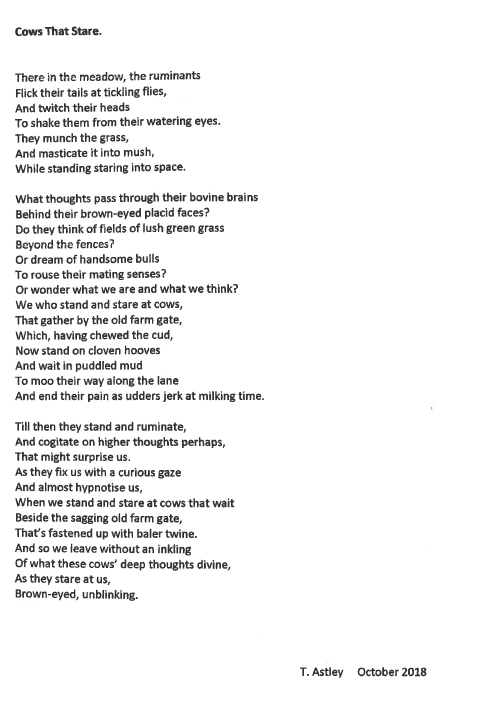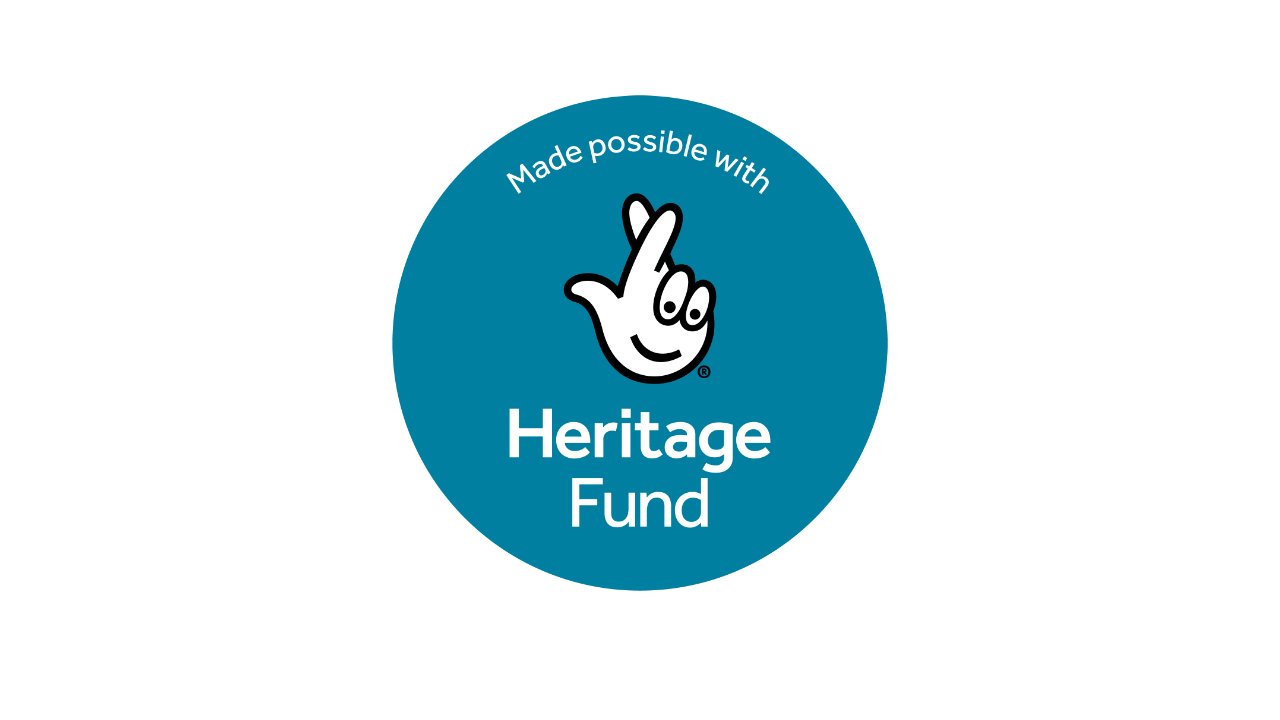Discover the aspirations and inspiring story of local poet, Terry Astley, in a new blog by NHSN Project Archivist, Ruth Sheldon.
One morning in early May I met Terry Astley, a softly spoken and gentle man who has recently kindly donated his archive of nature poetry to NHSN. Terry came to poetry in his adult life, having been inspired by literature at school but not considering poetry as a potential hobby until a holiday to the Isle of Skye catalysed a creative outpour of poetry, his instinctive response to the overwhelmingly beautiful environment around him. And so began his literary adventure of capturing nature experiences in emotive and often humorous poems.
Terry grew up in Forest Hall but spent nearly all of his Summer holidays in the idyllic Enid Blyton-esq surroundings of Whittle Dene, near Ovingham in Northumberland and he recalls many nature adventures as a young boy and later as a teenager surrounded by wildlife. These adventure walks which could last for hours allowed him to saturate himself with nature, the senses heightened by each season’s offerings, the damp mossy bark of autumn and the perfumed breezes of Spring. The nostalgia for his childhood environment is something he captures in many of his poems, recalling the magic that only nature can bring.
A diagnosis of cancer in Terry’s adult life turned his world upside down, every emotion became amplified, and his way of coping was to write. His newfound heightened awareness of himself and his surroundings meant that words uncontrollably cascaded from him, imagery formed in his mind that he couldn’t get down on paper fast enough and he would often wake in the middle of the night with an urgent need to write.
After successful cancer treatment the urge to write did not stop, Terry was fully immersed in his poetry, taking the reader or listener on a journey with vivid visual imagery. The poems ranged from witty, humorous perspectives to personal, emotive narratives but always with nature at their core. Terry eventually performed some of his poems for NHSN’s Wednesday Botany group, of which Terry is a member, and was met with applause and positive reinforcement that his poetry was important not just for him, but to share with a wider audience. And so, he continued to write.
Recently, Terry lost the use of his right hand, his writing hand which might have halted some people’s creativity, but not Terry, he taught himself to write lefthanded and with a good sense of humour and the support of his wife, Brenda, he continued creating poetry and writing to stand strong in the face of some very testing life challenges.
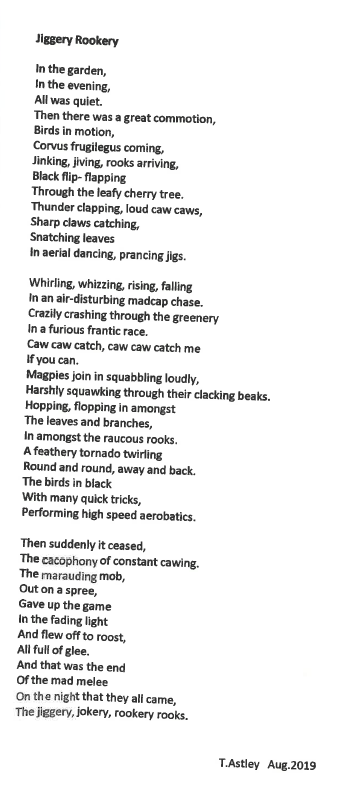
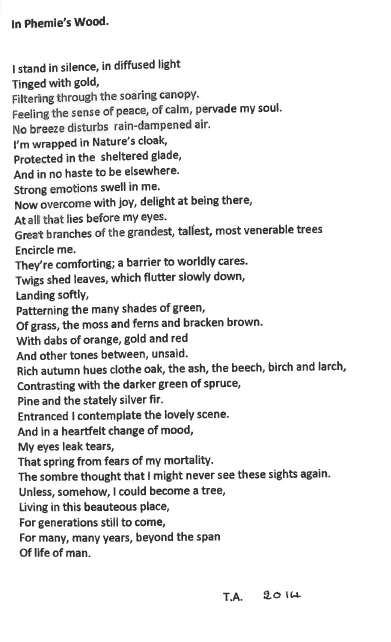
Terry is a big fan of abstract and nonsense poetry, admiring the likes of Edward Lear, and so some of his poems have a joyful rambling quality to them whereas others come from very personal moments of questioning and understanding. Sometimes the poems take many rewrites to perfect and on other occasions the words come out perfect the first time. His inspiration is what takes him in the moment, from the smallest flower to a vast landscape, his writing can be playful and nostalgic and then on occasion deal with the most powerful human emotions and life markers such as fear and death. He recalls one day, not long after his cancer diagnosis, he was forced to stand still in a spot of woodland in Northwest Scotland, much loved by him and his wife. He recalls noticing the landscape around him and the sudden fear that soon he may be gone from this world, that overwhelming sadness and fear resulted in the poem ‘Phemie’s Wood’ and on reading the poem we see the raw honesty from Terry but also real strength and resilience to facing his future battle with cancer and the possibility of life coming to an end before he is ready.
Terry continues to write today, developing his own style and trying to keep his poet’s voice personal and true to experience. He hopes his poems will inspire young people to engage with nature, to have adventures and learn from nature, to realise their potential and capabilities within the natural world and to recognise its power and beauty. He encourages people to read his poems slowly, to really take in the imagery formed within the words.
One of the last comments from Terry was to encourage people to take time to notice nature, to stand still and look closely at nature all around us. We don’t often allow ourselves to slow down, there is always the next thing to do on the list and always something to take our attention away from nature but how important it is to notice our natural environment and to let it support us throughout all moments in life.
